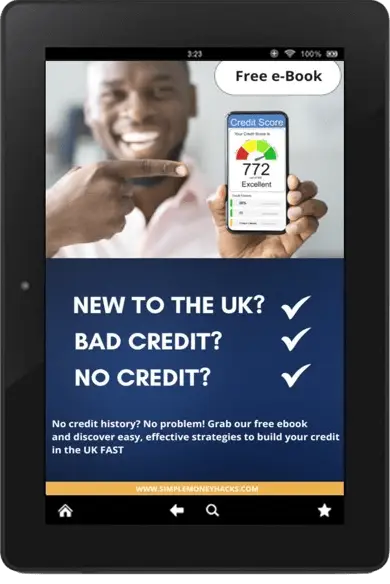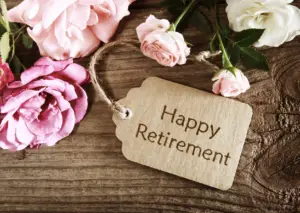The Banks Don’t Want You to Save. Let’s beat the bank. In this blog, let’s discuss how to break free and make saving a habit.
(Part 7 of the Wealth Wellness Series. If you’ve missed any of the previous parts, you can click here to access them.)
Want to know why most struggle to save? It’s not because we don’t earn enough or lack discipline. It’s because the entire financial system is designed to make sure we don’t save.
Banks don’t make money when you save; they make money when you borrow. Credit cards, overdrafts, and personal loans are the products they push because that’s where the real profit is. And the result? Saving money feels like an outdated relic from our grandparents’ time; borrowing is the new normal.
It’s no wonder that banks offer stupidly low interest rates to savers. It’s designed to discourage saving. Some of us look at those tiny returns on our hard-earned money and think, “What’s the point?” And it’s a fair question. Many savings rates today don’t even keep up with inflation. That means your money is losing value the longer it sits there.
Why We Stopped Saving (And Why It’s Not Your Fault)
There was a time when saving was common sense. People lived within their means, put money aside for a rainy day, and only borrowed when absolutely necessary. But over the years, banks and financial institutions have reprogrammed us.
They’ve made debt easy, convenient, and even desirable.
- Credit cards with ‘free’ money—A tempting £5,000 limit makes it easy to splurge today and worry later. I felt privileged when I was offered my first credit card, but I came to regret it later.
- Buy Now, Pay Later (BNPL): Why save for something when you can get it now with zero interest?
- Overdrafts are marketed as ‘safety nets’ – Making it normal to dip into negative territory every month.
And the worst part? These tricks work. According to The Money Charity‘s March 2024 report, UK residents owed £1,838.7 billion at the end of January 2024, marking an increase of £8.8 billion from the previous year. Millions of us are now relying on credit to cover everyday expenses. When borrowing is this easy, saving feels optional—but that’s exactly what banks want us to think.
The Power of Paying Yourself First
The key to saving isn’t willpower alone—it’s automation. You have to make saving as effortless as spending.
Here’s how to fight back:

1. Make Saving Automatic
Set up a standing order to move a portion of your income into a separate savings account as soon as you get paid. This way, saving becomes a non-negotiable bill—just like rent or Council Tax.
2. Commit to a Budget
Old habits die hard, and if you don’t have a budget, your money will always disappear before you can save. A solid budget helps you see where your money goes, control unnecessary spending, and prioritise saving first. Use the 50/30/20 rule (50% needs, 30% wants, 20% savings) or a zero-based budget where every pound is assigned a purpose. You can use old-fashioned pen and paper budgets and free spreadsheets. (download a free copy here) Free Apps that connect to your bank and give you real-time data.
3. Adjust Your Attitude Toward Over-Consumption
Social media, especially Instagram and TikTok, love to sell us the idea of a perfect life.
From spotless homes with matching spice jars to gym selfies in the latest Nike gear, we’re bombarded with images that say: “Buy this, and your life will look like this too.”
It’s easy to get caught in the trap. I still feel tempted to buy matching jars for my spices, hoping it will make my kitchen feel more put together. But here’s the truth—pretty jars don’t make my food taste better. And wearing the latest gym gear hasn’t once helped me lift heavier or run faster.
Sometimes, we tell ourselves, “Just one more course, one more product, one more outfit, and I’ll finally get there.”
But perfection is an illusion.
It keeps us spending on things that don’t actually move us forward.
So next time you feel the pull to buy something that promises a ‘better you,’ pause and ask: Will this truly help me? Or is it just draining my wallet?
Most times, the answer is no. Learn to appreciate what you already have.
4. Use ‘Hard to Touch’ Accounts
Banks want you to borrow, not save, so you have to be strategic. Open a savings account not linked to your current account or use a Fixed-Term savings account, making it harder to withdraw impulsively.
5. Use the ‘Debt Trick’ to Save More
Ever noticed how quickly you adapt to paying off debt? When I was in debt, I paid it off every month. I wish I had been just as disciplined with saving.
Saving is like a muscle—it needs training and consistency to grow. So, flip the script. Trick yourself into saving by setting up a ‘fake debt’ payment. But this time, you’re paying yourself instead of a bank.
Most savings accounts let you personalise them, so name yours like a debt. Because, in a way, it is—a debt you owe to your future self.
For example, if you’ve been paying £200 a month for a car loan and finally pay it off, don’t let that money disappear into everyday spending. Redirect it straight into your savings. Keep making that ‘payment’—only now, you’re building wealth instead of paying off debt.
Resist the Urge to Borrow—It’s a Trap
Banks love it when you borrow because it makes them rich, not you. Here’s how to stop falling into the debt trap:
- Unsubscribe from credit card offers and BNPL schemes. They’re designed to make spending feel affordable, but they keep you trapped in a cycle of owing.
- Challenge every purchase. Before buying, ask yourself: Would I still want this if I had to pay cash upfront?
- Have an emergency fund. Most people go into debt not because they’re irresponsible but because they have no buffer for unexpected costs. Aim for at least £1,000 to start.
Final Thought: Play Their Game, But Beat Them at It
The financial system is rigged to make borrowing easy and saving hard. But you don’t have to play by their rules. Set up automatic savings, commit to a budget, rethink over-consumption, use the right accounts, and stop seeing debt as normal.
Every pound you save is a pound they can’t charge you interest on. And that? That’s how you win.
👉 Want daily money hacks to outsmart the system? Follow me on On the Gram: 💡





